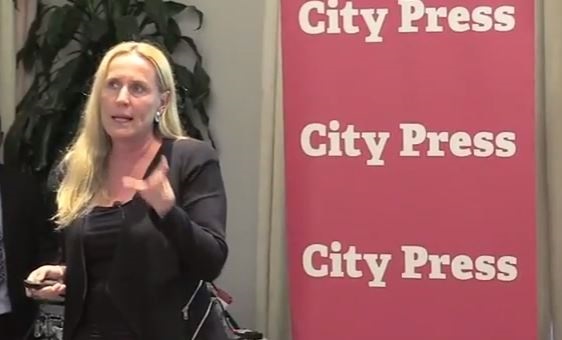
Striving for gender equality in organisations continues to be an important goal, but unconscious bias remains an obstacle for changing mindsets.
Gender equality is a moral and a business imperative: “We should care because gender equality is a human right, and for some people it really is a question of life and death,” Iris Bohnet told a recent Gibs forum.
Professor of public policy at the Harvard Kennedy School and the director of its women and public policy programme, Bohnet expanded upon ideas contained in her book What Works, which offers insights from behavioural economics to help us de-bias.
Encouraging diversity in hiring and advancement
diversity training programmes have had limited success in de-biasing organisations and specific interventions are needed due to the power of implicit bias.
“Categorical thinking means we unconsciously put people into boxes. If don’t see many female venture capitalist or many male kindergarten teachers, we don’t associate them with those jobs.”
Bohnet said changes in the talent acquisition process would “make it easier for our minds to get things right” in order to move the needle enough so as to make a difference.
Removing demographic information from job applications, instituting work sample tests and structured interviews as a final step were some of the changes she suggested to the hiring process.
While there are many gender-specific product advertisements, we should be as rigorous in our talent advertisements, as the adjectives used in these could unconsciously attracts male or female applicants, Bohnet explained.
Work sample tests are the “very best predictor of performance” as they mimic what the person will be doing in the day-to-day role.
Structured interviews should then be used as a final step
in the process, as unintentional bias means our minds are incapable of
filtering out noise from the useful information.
“Diversity on the hiring committee itself won’t necessarily solve the problem, as many biases are shared. Organisations need to have the right processes in place to help people see talent where it is, rather than where their affiliations might lie.”
Other organisational initiatives
Obstacles to promotion within the organisation often start early, with traditionally underrepresented groups such as women and people of colour often excluded from projects of significance.
“By the time you are up for promotion, you have a ‘thin file’ because you were never given the opportunity to participate. We have to go back and see how people were developed, or not, earlier on.”
Biases are most evident in the case of assessing for potential future roles: “We can’t imagine women in certain roles or level of jobs if there are no previous role models.”
The power of role models, on both individual and organisational levels, should not be underestimated Bohnet explained.
Having traditionally underrepresented groups in visible leadership positions can make a big difference.
“Through exposure, eventually mindsets change.”
Similarly, it is essential to learn from role model organisations that have “been able to crack the nut by de-biasing the organisation”.
These are companies who have
achieved diversity through broad interventions from the top, including quotas,
broad recruitment, development and making sure there isn’t performance support
bias in order to give everyone an equal opportunity.
Implementation obstacles
Organisations should think of ways to make principles of diversity behaviourally relevant Bohnet said: “Don’t just write codes of conduct, as no one is going to live them.”
The obstacle of women not helping other women progress in their careers seems to be diminishing:
“There is some hope. This tends to be more likely among the first generation of women, who had to break through male barriers, adapt and adjust their behaviour to be like men in order to make it.
"We see much less with second or third generation of women leaders,” Bohnet explained.
Traditionally disadvantaged groups usually gain power in one of two ways: Either through forging coalitions with other “weak players” or by associating with the powerful.
“More and more women in senior positions look after women in more junior roles as they don’t feel that hiring another woman would undermine their own authority.”
While many organisations have not done enough to sufficiently diversify, they are not the only entities which should promote change, Bohnet concluded.
Encouraging diversity at country or government level requires discovering which possible triggers, such a social recognition through ranking indices, can achieve this.
While South Africa’s focus on
inequality is mostly concerned with economic factors, there is scope for the
conversation to be extended to explore the intersection of economic inequality
and gender inequality so as to encourage de-biasing on multiple levels.




 Publications
Publications
 Partners
Partners








